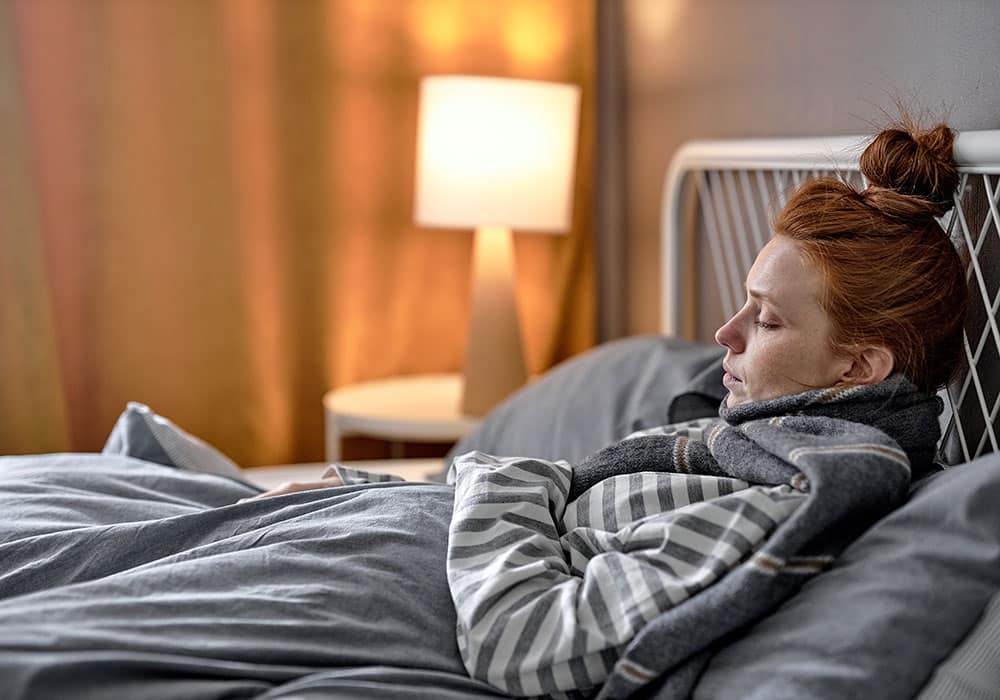Key Points
- Muscle relaxers cause sleepiness because they affect the central nervous system, producing a sedative effect.
- Managing drowsiness safely requires taking several precautions, including avoiding certain activities.
- Knowing when to contact a healthcare provider or seek help is essential to the safe use of muscle relaxers.
Anyone who has experienced serious muscle tension and spasms knows how painful and disruptive they can be. Even tasks as simple as cleaning your living area may be unbearable without the proper treatment.
Muscle relaxers are a focal point in the medical management of muscle tension for many patients. Patients who have never taken them before often ask: Do muscle relaxers make you sleepy?
The short answer is yes. Most muscle relaxers list drowsiness as a common side effect. This is due to the sedative effect that these medications exert on the nervous system.[1]
Different medications may cause different levels of drowsiness. Dosage, your metabolism, and several other factors can also affect how sleepy you may feel after taking muscle relaxers.

Understanding the Effects of Muscle Relaxers on Alertness
Muscle relaxers like cyclobenzaprine engage with the central nervous system (CNS) to interrupt nerve signals that cause muscle spasms.[2] It is because of this interaction with the CNS that muscle relaxers can alter your mental state and make you feel sleepy.
How Muscle Relaxers Cause Drowsiness
Muscle relaxers are not sophisticated enough to target only the brain activity that regulates muscle action. When you take a muscle relaxer, it slows nerve signals meant for both the body and the brain.
The sedative effect that makes you feel sleepy is caused by the medication’s ability to increase gamma-aminobutyric acid (GABA) activity.[3] GABA is a chemical messenger that produces a calming effect. More GABA means not only less muscle tension, but also less alertness.
Types of Muscle Relaxers and Their Sedative Effects
Most muscle relaxers cause sleepiness, but this doesn’t mean your experience will feel the same with every medication. Some are more likely to cause significant sleepiness, while others are less potent in this regard.[4]
| Medication | Level of Drowsiness |
| Cyclobenzaprine (Flexeril) | Significant |
| Methocarbamol (Robaxin) | Less severe |
| Tizanidine (Zanaflex) | Significant |
| Carisoprodol (Soma) | Moderate to severe |
| Baclofen | Less severe |
Factors That Influence Sedation Levels
Dosage, your sensitivity, interactions with other medications, your age, and other factors may affect how sleepy you feel (and for how long) after taking a muscle relaxer.
Dosage: Higher doses typically mean stronger sedation. Starting with lower doses may help you to minimize sleepiness while acclimating to the medication. Follow your healthcare provider’s prescription exactly as written.
Individual sensitivity: Some people are more sensitive to muscle relaxers or other medications due to genetics. If you know you are more sensitive to this kind of medication, telling your doctor ahead of time is advised.
Drug interactions: Alcohol, sleep aids, and anxiety medications may have a compounding effect on drowsiness and other symptoms.[5]
Age: Older adults process medications differently and may notice stronger sedation after taking muscle relaxers as a result.
Body weight: The larger you are, the less sleepy you may feel after taking muscle relaxers and vice versa.
How to Manage Sleepiness After Taking Muscle Relaxers
While sleepiness is not a harmful side effect under normal conditions, failing to take the proper precautions can cause serious injury.
Taking your medication in the evening may help you to leverage the sedative effect for your benefit. Instead of being sleepy when going about your daily activities, you will feel relaxed right before bed.
When starting a new medication, taking your first dose on the weekend (or whenever you are off work) may help to prevent any accidents or major productivity loss.
Key Safety Precautions to Avoid Injury
You should never operate machinery or a vehicle when under the effects of medications like muscle relaxers. Even if you’re able to stay awake and productive, your reaction time and judgment are still impaired.
Be more mindful of potential hazards around the home. Stairs, upturned rug corners, hot cooking pans or grills, and electrical hardware all pose a higher risk of injury when you are under the effects of a muscle relaxer.
Communicating with family members and roommates is always a wise practice when taking muscle relaxers. Make sure the people around you understand when you are going to take your medications so they can adapt accordingly.
Strategies to Reduce Drowsiness
Building up from a low dose is a safe and effective way to minimize sleepiness and other muscle relaxer side effects. Staying hydrated will help to combat the fatigue caused by the sedative effect. Light exercise like walking can help combat drowsiness, but only exercise if you are confident you can do so safely.
Coffee or other caffeinated drinks may help to offset the sleepiness when timed correctly, but masking the sedative effect artificially can be dangerous. Ask your doctor about caffeine consumption to be safe.
When to Contact a Healthcare Provider
If you are so sleepy after taking a muscle relaxer that you cannot stay awake at all during normal waking hours, contact your doctor as soon as possible.
Other signs and symptoms that require urgent medical attention include the following:[6]
- Breathing difficulty: Powerful sedation can make it more difficult to breathe. Seek immediate care if you notice your breathing becoming shallow or labored.
- Confusion or poor memory recall: If either of these issues occurs, your medication dose may be too high.
- Mobility issues and falls: Any accidents caused by medication-related sleepiness need to be promptly reported and resolved (likely with a reduced dosage or medication change).
Serious Side Effects Requiring Medical Attention
Taking prescription drugs like muscle relaxants as directed and with all proper precautions minimizes your risk of experiencing serious side effects. However, serious side effects are still possible.
- Allergic reactions: If you notice a rash, hives, swelling, or breathing difficulty, stop what you are doing and seek emergency treatment.
- Liver problems: Yellow skin or eyes may indicate a potentially serious problem with your liver, which is a possible side effect of some muscle relaxers.[7]
- Heart rhythm changes: Certain medications can affect heart rate or rhythm. Report chest pain or palpitations immediately.
- Severe weakness: Extreme muscle weakness beyond normal sedation needs evaluation. This could indicate an overdose or a severe reaction.
What About Long-Term Use?
Whenever possible, long-term use of muscle relaxers is avoided. Muscle relaxers have been shown to be less effective than a placebo in chronic pain. They can also cause significant health concerns when taken for extended periods of time.[7]
Tolerance building is a consistent issue across several popularly prescribed muscle relaxers. As your body acclimates to the drug, it requires more to feel the same relief, increasing the risk of adverse side effects.
Some muscle relaxers are habit-forming due to their effects on the central nervous system. This must always be considered by healthcare providers prescribing them.
Abruptly stopping your use of muscle relaxers may cause withdrawal symptoms. The goal for chronic pain sufferers should always be to transition to alternative options with less problematic long-term effects and risks to their health.
Free Yourself From Muscle Relaxer Misuse
Finding the happy medium between effective muscle pain management and responsible medication use takes time and patience. Understandably, dealing with constant muscle spasticity and pain often causes people to opt for more powerful remedies than they would generally prefer.
If your reliance on muscle relaxer medications takes a turn into abuse territory, excuses will only make the problem worse. Finding professional treatment as soon as you can is crucial to minimizing the damage caused by muscle relaxer misuse.




